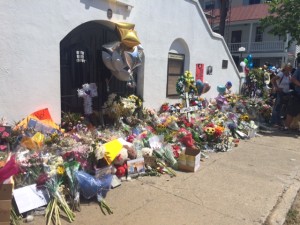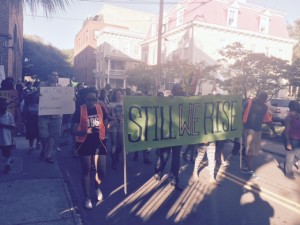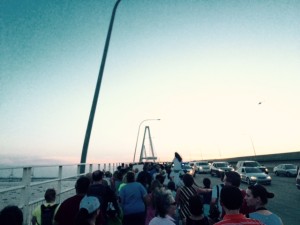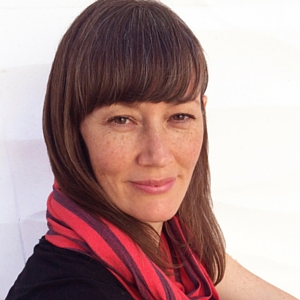In November 2014, I met a man who made a profound impact on my life.
Fast forward to last week, I woke up to my husband saying that a dear friend from Miami had just called to make sure we were OK after he heard about the Charleston M assacre. I immediately went online to learn more.
assacre. I immediately went online to learn more.
I came across a local news site and began reading this horrific story about the nine local victims killed in Charleston’s oldest African American church. As I scrolled down to read the article, I came across a picture of the man from last November—Clementa Pinckney, the beloved reverend and senator. He was among the nine killed. My heart sank.
In November 2014, I was invited by The Sophia Institute of Charleston, SC and The Contemplative Alliance based out of New York City to join a small two-day gathering of interfaith leaders, environmental activists, and others to discuss ways to protect and care for Earth’s community of life. Clementa Pinckney was one of the interfaith leaders asked to speak. I was deeply moved by his message (his talk begins three minutes into the video), his presence, and his resonant voice. I was honored to be in this discussion and felt even more honored to have had time with him. I left there that day knowing I had met a new teacher and a great leader, and I looked forward to our next gathering. My regret is that I didn’t make it to one of his church services fast enough. I kept putting it off thinking I had plenty of time to engage.
This tragic event has rumbled the hearts of many.
It has awakened a part of me that has longed to engage and support change, to do more than I feel I’m offering at this time. It has also awakened my community. The outpour of love and peace within the community has been refreshing and healing. There’s a true sense of coming together, redefining what community means, looking at one another’s eyes rather than our skin color, wanting justice for our people, and moving past the shackles of our past. We are standing strong in support of the movement Black Lives Matter and have even taken it another step further to chanting “People Matter” as the aim is to see each other as one.
to engage and support change, to do more than I feel I’m offering at this time. It has also awakened my community. The outpour of love and peace within the community has been refreshing and healing. There’s a true sense of coming together, redefining what community means, looking at one another’s eyes rather than our skin color, wanting justice for our people, and moving past the shackles of our past. We are standing strong in support of the movement Black Lives Matter and have even taken it another step further to chanting “People Matter” as the aim is to see each other as one.
I’m not disillusioned by the fact that it takes time to make real change.
I recognize within myself as a white woman who is from the South but has lived a majority of her adult life in other parts of the country and world, that what’s ingrained in us runs deep and takes time to recondition. It takes effort to want to look at the shadow of who we are, to really look at myself and ask: what keeps me from unification—where is there lingering resistance? It’s about looking deeply into my own shadow to see what lives in the shadows of the collective. It starts with each of us having the willingness to want real change, knowing that it only happens when we work together with hope and a desire of union.
Until we collectively see that this is our problem—a community problem—rather than their problem, we’ll never really see change.
 It has been one week. The concept of union runs strong in our community at this time. My hope is that we will continue to make it a priority to find unity even as we settle back into our normal everyday lives.
It has been one week. The concept of union runs strong in our community at this time. My hope is that we will continue to make it a priority to find unity even as we settle back into our normal everyday lives.
How can we keep this alive, how can we not go back to just watching from the sidelines? In the last week, I’ve attended the March for Black Lives and The Bridge to Peace march, and I’ve gathered in front of Emanuel African Methodist Episcopal Church to pay my regards. There’s much more to be done and there’s much more that I can do. It’s time to band together with other organizations such as Showing Up for Racial Justice, which is already paving the way for change in Charleston and around the country.









thank you for sharing this reflection.